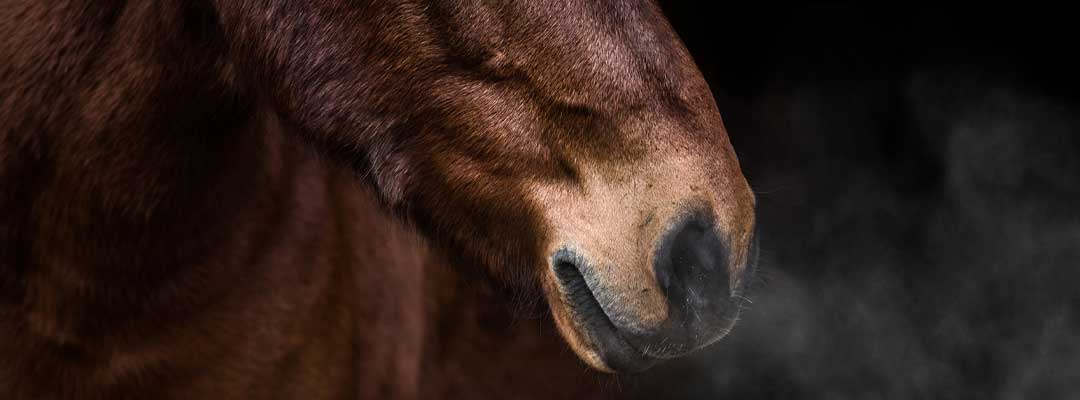Air Quality in the Barn
A cozy barn may not be best for your horse's lung health.

When the winds are up and temperatures drop, we want our horses to be comfortable and protected. Nestling into a cozy stable may seem like a good solution to combat the conditions, but did you know there can be health risks lurking in a tightly closed-up barn?
Horses actually breathe easier in cold, dry air. However, this winter advantage is lost when horses are confined to a poorly ventilated barn where humidity and particulate matter in the air is high. A variety of airborne substances have been implicated in causing lung irritation. Ammonia from bacterial breakdown of urea in urine is a well-documented lung irritant in a variety of species. "Organic dust" is also an offender. This includes microscopic particulate matter from mites, plant material (e.g. beta-glucans), feces, bacteria and their products (endotoxin) and fungal spores.
Reducing the Risk: Management Techniques and Horse Supplements
Keeping horse stalls clean and the building well ventilated are the first steps in reducing exposure and horse breathing problems. Using wood chips or synthetic bedding (e.g. paper based) reduces plant and fungal matter but must be used in all the stalls. Horses are also exposed when hay or straw are stored in the same building, even in a loft. Horses with signs of respiratory tract irritation should have their hay and bucket fed meals thoroughly wet down. Always strive to remove horses from the barn when stalls are being cleaned and aisles swept.
These management measures will go a long way in reducing troublesome exposures. There are also horse supplements you can incorporate to assist the horse's body in normal respiratory function and maintaining healthy tissues. Lung EQ Respiratory Support Pellets promote overall equine respiratory, lung and immune health for horses with respiratory reactions to environmental irritants and seasonal allergens. Flaxseed meal promotes balanced inflammatory pathways. MSM also assists the body in homeostatic regulation of responses to triggers of lung irritation. Learn more about Lung EQ Respiratory Support Pellets, the recommended supplement for horses with exaggerated reactions to seasonal environmental irritants and allergens.
Exposure to lung irritants and activation of the immune system results in considerable oxidative stress. Vitamin C is an important antioxidant in the lung, and studies have shown low levels of vitamin C in the lung fluid of compromised horses. Oral dosages of 4.5 to 10 grams/day are used for the average size horse. Antioxidant activity can be boosted by pairing it with sources of plant antioxidants such as Grape Seed and citrus bioflavonoids.
When weather conditions are unfavorable and horses need to be stalled, remember that controlling exposures is the first step, and to incorporate horse supplements for the extra respiratory support your horse needs.
About the author: This content was originally provided by Uckele Health & Nutrition, with minor additions included from Valley Vet Supply.


